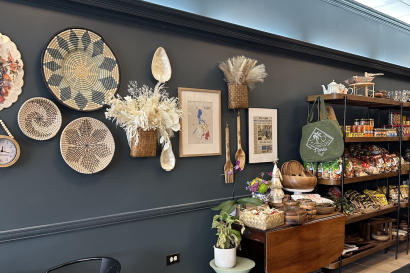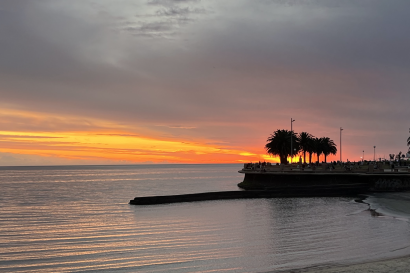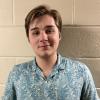
“Buenos días, doctora.” Good morning, doctor. The first couple times I heard it, I assumed it was addressed to one of the many doctors bustling through the hallways of Hospital Sótero del Río. After several weeks, I continued to hear it—walking through swinging doors unaccompanied or on my way out of a unit. “Chao, doctora, que esté bien.” Goodbye, doctor, take care. It was directed at me, I realized, suddenly conscious of the white coat the program required that I wear during my weekly clinical observation in Sótero. As a kid who played by bandaging and vaccinating my stuffed animals with plastic syringes ever since I learned to walk, I won’t pretend this wasn’t a power trip. Once I got over the thrill of being mistaken for a doctor, I realized the larger benefit—unbelievable access. I could explore units behind restricted doors, stand in on surgeries, chat with patients (of course, it’s worth mentioning that I was authorized to do so). Semester-long autonomy within the medical system was an unexpected gift, and at the same time required that I take initiative to learn about what interested me most.
In complement to the IES Abroad seminar on the Chilean health system, in Sótero I was able to hear truly nuanced perspectives on the public system. As a brief overview, Chilean healthcare is split into the private sector, which functions similarly to insurance companies in the U.S., and the public sector, which Sótero serves. Public healthcare is available to all, and costs are tiered based on income (the lowest two segments receive free medical attention). A growing list of around 80 particularly common and/or costly ailments receive guaranteed treatment under the GES, or Explicit Health Guarantees. However, there is a stark gap between public and private healthcare, and the public generally lacks faith in the public system.
Some healthcare professionals in Sótero lamented the hospital’s lack of infrastructure and specialists, emphasizing low rates of patient satisfaction. Others were proud of its status as a leading institution that serves as a clinical field for the Universidad Católica medical school. On the whole, patients were understandably frustrated with their experiences in the hospital, especially the long wait times. However, I fielded frustrations going both ways—the doctors and nurses have little control over congestion and are often doing the best they can to see many patients in limited time. A nurse once exclaimed to me, “Chileans don’t understand the definition of an emergency!” When patients arrive to triage with less-severe symptoms they are often turned away, as waiting rooms are already full, and they would be better served in primary care.
I accompanied a physical therapist on home visits, during which I was able to better understand Sótero’s population. Santiago’s Southeast sector contains 1.5 million inhabitants, and the majority of patients are in the bottom two income tiers. As we drove around Puente Alto, we listened to concerns and joked with patients from their couches or beds, many of whom supported large families. A trip to the hospital, especially with a long wait, might mean leaving a newborn or grandparent home alone.
In our seminar, we learned about the patient’s Derechos y Deberes (Rights and Duties). For our final presentation, the Sótero group chose to focus on doctor-patient relationships, and how factors such as limited time and congestion could limit the application of these principles. It was interesting to watch some medical professionals develop close and caring relationships with their patients, while others more brusquely treated solely physical pathologies.
On our way through oncology one day, a group of sonrisólogos (“smile-specialists”) dressed as clowns mistook us for doctors, of course misled by the white coats. They danced around us, singing about las rondas médicas. The most important question during rounds, they reminded us, is ¿Como se llama? ("What is your name?") One of the rights under Chilean law dictates that patients are addressed by name. Warm human interaction, we witnessed, is a powerful medical tool.
Sótero is a huge medical complex constantly humming with activity, and understandably we were not the first priority. We never quite knew what we were going to get—sometimes, we would arrive and be placed with an extremely engaged professional. A plastic surgeon in ophthalmology took me in for the morning and had me stand over his shoulder as he explained in detail the graft he was making for eyelids and the complications of the patient due to Down’s Syndrome…a nurse in pain management disassembled an epidural catheter to demonstrate how it worked…a nurse in critical care took a moment to show me the exposed intestines of a patient before jumping in to assist on a tracheotomy.
Other days, however, we were given a tour and then promptly left behind. In those moments, I discovered that I needed take ownership of my learning. Empowered by the white coat, I wandered through the halls to find an orthopedist and asked to sit in as he treated a tibia-fibula fracture. In the ER, we made our way past patients crowded in chairs with IVs already in, and a woman reached out to us to talk about her son who had been waiting there for three days. In psychiatry, we made origami with patients. In pediatrics, we spent time in the resident’s lounge, chatting about medical school. In cardiology, I found an attending who invited me to join him on rounds, despite the fact that to his surprise I could not read an EKG.
On my way home, I passed through the ER waiting room.
Doctora, I heard. It was unmistakeably to me this time. “Please, will he be seen soon? What can I do for him?” A woman gripped my arm, gesturing at her husband slumped against the wall.
Yo no… solo soy una alumna. I stuttered. I’m just a student. Standing helpless in my white coat, I had never felt like less of a doctor. I had also never been more motivated to become one.

Thea Lance
<p class="MsoBodyText" style="margin-top:.4pt; margin-right:20.75pt; margin-bottom:.0001pt; margin-left:5.5pt"><span style="line-height:103%">I'm a lover of adventure, whether that's climbing mountains or exploring a new city. This has taken me from my hometown in North Carolina to the arctic circle and beyond, and most recently to Chile! I'm majoring in Biology on a pre-medical track, and I am thrilled to be learning medical Spanish in Santiago this semester.</span></p>








